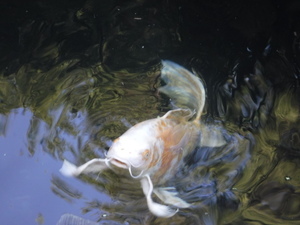16467744
Chapter 1 Terms
Description
No tags specified
Flashcards by Miriam Brundage, updated more than 1 year ago
More
Less

|
Created by Miriam Brundage
about 7 years ago
|
|
Resource summary
| Question | Answer |
| Matter | The tangible material that makes up the universe and everything in it. |
| Atom | The smallest unit of matter that cannot be broken down, except in nuclear reactions. |
| The Scientific Method | The general approach to scientific experimentation used worldwide. |
| Hypothesis | An initial best guess about some question concerning nature. |
| Theory | A detailed explanation of experimental results. |
| Model | A representation of reality and a way of understanding nature. |
| Scientific Notation | A method of writing exceedingly large or small numbers used by scientists for convenience. |
| Metric System | A system of units based on multiples of ten. |
| Base Unit | The base unit of measurement for any given measurable quantity, which is equal to 1. |
| Number of Entities | Base Unit, Mole, mol |
| Length | Base Unit, Meter, m |
| Mass | Base Unit, Gram, g |
| Volume | Base Unit, Liter, L |
| Temperature | Base Unit, Degrees Celsius, °C |
| Time | Base Unit, Second, s |
| Information Storage | Base Unit, Byte, b |
| Tera- | Metric Prefix, T, 1/1,000,000,000,000 or 10 to the negative power of 12 |
| Giga- | Metric Prefix, G, 1/1,000,000,000 or 10 to the power of negative 9 |
| Mega- | Metric Prefix, M, 1/1,000,000 or 10 to the power of negative 6 |
| Kilo- | Metric Prefix, k, 1/1000 or 10 to the power of negative 3 |
| Deci- | Metric Prefix, d, 10 |
| Centi- | Metric Prefix, c, 100 |
| Milli- | Metric Prefix, m, 1000 or 10 to the power of 3 |
| Micro- | Metric Prefix, μ, 1,000,000 or 10 to the power of 6 |
| Nano- | Metric Prefix, n, 1,000,000,000 or 10 to the power of 9 |
| Pico- | Metric Prefix, p, 1,000,000,000,000 or 10 to the power of 12 |
| Femto- | Metric Prefix, f, 1,000,000,000,000,000 or 10 to the power of 15 |
| Conversion Factors | Fractions used to allow for the conversion of one metric unit to another. |
| Dimensional Analysis | A method used to convert any unit to any other unit, no matter how complicated the units are. |
| Celsius Temperature Scale | A temperature scale suitable for most scientific work, where 0°C is the melting point of water and 100°C is the boiling point of water. |
| Celsius-Fahrenheit Conversion Equation | °C = 5/9 (°F - 32) |
| Precision | The closeness of measured values to one another. |
| Accuracy | How close a number is to a known and accepted standard value. |
| Standard | Something for which some characteristic, such as mass or length, is known very precisely. |
| Global Warming | The increasing temperatures on Earth that result from human activities such as the burning of coal and fossil fuels. |
| Climate Change | The effects of Global Warming, such as rising sea levels and dissappearing islands. |
Want to create your own Flashcards for free with GoConqr? Learn more.
